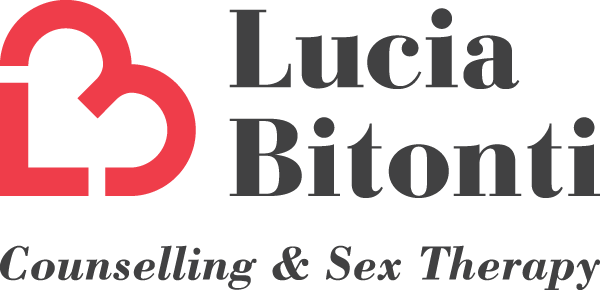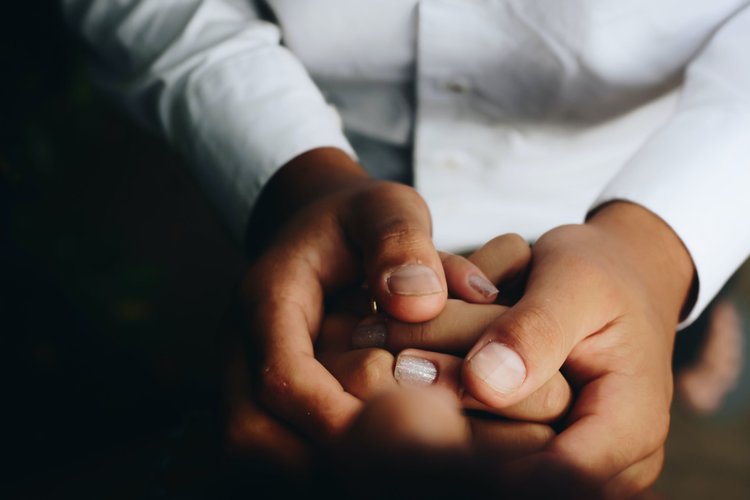At Lucia Bitonti, we understand that healing after relationship trauma is a journey that requires compassion, understanding, and effective strategies. This article delves into the process of healing, offering insights and resources to help you navigate through this challenging time. We’ll explore various aspects of recovery, from understanding trauma to rebuilding self-esteem, and provide guidance on how to emerge stronger and more resilient.
The Path to Healing: Understanding Relationship Trauma
Relationship trauma can leave deep emotional scars, impacting one’s sense of self and ability to trust. It’s a complex experience that often requires time and patience to overcome. The journey towards healing is not linear; it involves various stages, including acknowledging the trauma, understanding its impact, and learning to rebuild.
Recognising the Signs of Relationship Trauma
- Emotional Turbulence: Feelings of sadness, anger, or numbness.
- Trust Issues: Difficulty in trusting others or constant fear of betrayal.
- Self-Doubt: A diminished sense of self-worth or identity.
Steps Towards Recovery
- Acknowledgment: Accepting that the trauma occurred is a crucial first step.
- Seeking Support: Engaging with professionals like Lucia Bitonti or support groups can provide a safe space to process your feelings.
- Self-Care: It’s critical to put your health first. This covers mental, emotional, and physical well-being.
Strategies for Healing
Rebuilding Self-Esteem: After a traumatic relationship, it’s common to struggle with self-esteem. Engaging in activities that reinforce your sense of self-worth can be incredibly beneficial. This might include:
- Creative Outlets: Art, writing, or music can be therapeutic.Websites like Art Therapy Resources provide insights and ideas on how to use creative expression as a tool for emotional healing.
- Physical Activity: Exercise can boost mood and self-confidence.
- Positive Affirmations: Reinforcing your value through positive self-talk.
Developing Healthy Relationships: Understanding the characteristics of healthy relationships is key. This involves:
- Communication: Learning to express your needs and listen to others.
- Boundaries: Setting and respecting personal boundaries.
- Trust: Building trust gradually in new relationships.
Resources and Support
There are numerous resources available for those recovering from relationship trauma. Consider exploring:
- Counseling Services: Professional help, such as the services offered at Lucia Bitonti, can provide tailored support.
- Educational Materials: Books and articles on relationship trauma and recovery.
- Support Groups: It can be consoling to connect with people who have gone through similar things.
Moving Forward
Recovering from relationship trauma is an extremely private process. It’s about finding what works for you, whether that’s through professional support, self-help strategies, or a combination of both.
Rediscovering Yourself After Trauma
Post-trauma, many individuals find themselves at a crossroads, uncertain about who they are or what they want from life. This period, while challenging, also presents an opportunity for profound personal growth.
Embracing Self-Discovery
- Exploration of Interests: Delve into new or forgotten hobbies. This exploration can be a powerful way to reconnect with yourself.
- Mindfulness Practices: Techniques like meditation and yoga can help in grounding yourself and understanding your inner world.
- Journaling: Putting your ideas and feelings on paper might help you process and comprehend your emotions in a therapeutic way. It’s a form of self-expression that can help clarify your thoughts and feelings. For more insights on the benefits of self-reflection and mindfulness, explore our resource on The Impact of Social Media on Intimacy, which discusses the importance of connecting with oneself in a digital age.
Building a New Future
- Goal Setting: Establish new goals that align with your true self, not the person you were in the traumatic relationship.
- Education and Career: Consider if your current educational or career path aligns with your new goals. Sometimes, a change in these areas can be incredibly empowering. Exploring new educational opportunities or career paths can open doors to fulfilling experiences that resonate more deeply with who you are now. Websites like TED Talks offer a wealth of inspirational talks that can provide new perspectives and ideas for your educational and career journey.
- Social Connections: Foster relationships that support and uplift you. This might mean forming new friendships or reconnecting with old ones.
The Role of Professional Support
While self-help strategies are valuable, the role of professional support cannot be overstated. Therapists and counselors, like those at Lucia Bitonti, can provide expert guidance tailored to your unique situation.
Types of Therapy
- Individual Therapy: One-on-one sessions that focus on your specific experiences and feelings.
- Group Therapy: Offers a community of support, allowing you to learn from others’ experiences.
- Specialised Therapies: Approaches like EMDR or Trauma-Focused CBT are designed specifically for trauma recovery.
The Benefits of Therapy
- Safe Space: Therapy provides a confidential and safe environment to explore your feelings.
- Coping Strategies: Learn effective ways to manage and cope with your emotions.
- Understanding Patterns: Therapy can help in identifying and changing unhealthy patterns in relationships.
Nurturing Physical Health
Physical health is deeply intertwined with emotional well-being. Taking care of your body is a crucial aspect of the healing process.
- Regular Exercise: Physical activity can boost mood and reduce symptoms of anxiety and depression.
- Nutrition: A balanced diet can have a significant impact on your energy levels and overall mood.
- Sleep Hygiene: Quality sleep is essential for emotional regulation and mental health.
The Power of Community
Healing doesn’t happen in isolation. Building a supportive community around you can be incredibly beneficial.
- Support Groups: Engaging with others who have had similar experiences can provide comfort and understanding.
- Volunteering: Giving back to the community can foster a sense of purpose and connection.
- Social Activities: Participating in group activities can help rebuild social skills and confidence.
Embracing a Holistic Approach
Healing from relationship trauma requires a holistic approach.
- Creative Expression: Art, music, or dance can be powerful outlets for expressing emotions and experiences.
- Spiritual Practices: For some, spiritual or religious practices can offer comfort and a sense of community.
- Nature and Outdoors: Spending time in nature can be incredibly healing and grounding. The tranquility and beauty of natural surroundings can have a calming effect, helping to reduce stress and anxiety. Websites like Nature and Forest Therapy offer insights into how nature can be a therapeutic ally in your healing journey, emphasising the importance of connecting with the natural world as part of holistic well-being.
Continuous Learning and Growth
Remember, healing is a journey, not a destination. It involves continuous learning and growth.
- Educational Resources: Books, podcasts, and workshops on personal growth and trauma recovery can provide valuable insights.
- Self-Reflection: Regularly take time to reflect on your growth and the changes in your life.
Cultivating Patience and Self-Compassion
In these times, it’s crucial to remember the power of patience and self-compassion. Healing doesn’t adhere to a strict timeline. Like the natural world, it has its seasons of growth and rest. Be gentle with yourself, allowing for moments of reflection and rest as much as those of active healing. Embracing self-compassion can be transformative, and resources like those found on Mindful.org offer valuable insights and practices to cultivate a mindset of patience and kindness towards oneself during the healing process.
Conclusion
In conclusion, healing from relationship trauma is a deeply personal and transformative journey. It’s about more than just moving past pain; it’s an opportunity to rediscover who you are, to build resilience, and to create a life that truly reflects your values and aspirations. Remember, this path is not always linear or predictable. There will be challenges and setbacks, but each step, no matter how small, is a step towards a stronger, more empowered you. If you’re ready to embark on this journey of healing and self-discovery, reach out to us. Let’s work together to build a future filled with hope, resilience, and empowerment.
Frequently Asked Questions
- What are the signs of relationship trauma?
Emotional distress, trust issues, and a decreased sense of self-worth are common indicators.
- How long does it take to heal from relationship trauma?
Healing is a unique process for everyone. It can vary depending on the individual and the nature of the trauma.
- Can therapy help with relationship trauma?
Yes, therapy can be a vital tool in the healing process. It provides a safe space to understand and work through your emotions.
- Is it possible to fully recover from relationship trauma?
Recovery is possible, though the journey is different for everyone. With the right support and strategies, individuals can rebuild their lives.
- How can I support a loved one dealing with relationship trauma?
Offer a listening ear, encourage them to seek professional help, and be patient with their healing process.
- Are there any specific therapies recommended for relationship trauma?
Therapies like Cognitive Behavioral Therapy (CBT) and Eye Movement Desensitisation and Reprocessing (EMDR) are often recommended.


